|
Books Should Be Free Loyal Books Free Public Domain Audiobooks & eBook Downloads |
|
|
Books Should Be Free Loyal Books Free Public Domain Audiobooks & eBook Downloads |
|
Non-fiction |
|---|
|
Book type:
Sort by:
View by:
|
By: Oscar Wilde (1854-1900) | |
|---|---|
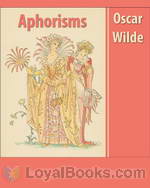 Aphorisms
Aphorisms
In 1894, Oscar Wilde (1854-1900) published two short collections of aphorisms: “A Few Maxims For The Instruction Of The Over-Educated”, in the Saturday Review newspaper, and “Phrases and Philosophies for the Use of the Young”, in the Oxford student magazine The Chameleon. By turns witty, intellectual, counter-intuitive and obtuse, the collections came to be seen by many as emblematic of Wilde’s style, and countless collections of Wildean aphorisms have since been published. | |
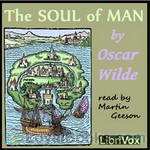 The Soul of Man
The Soul of Man
“(T)he past is what man should not have been. The present is what man ought not to be. The future is what artists are.”Published originally as “The Soul of Man Under Socialism,” this is not so much a work of sober political analysis; rather it can be summed up as a rhapsodic manifesto on behalf of the Individual. Socialism having deployed technology to liberate the whole of humanity from soul-destroying labour, the State obligingly withers away to allow the free development of a joyful, anarchic hedonism... | |
By: Ottilie Wildermuth (1817-1877) | |
|---|---|
 Queen
Queen
Maggie is an orphan who depends on the charity of the farmer she lives with. She tries to be cheerful and helpful to everyone where she is. However, Maggie dreams of being a queen. But how can a poor orphan ever become anything other than what she is? | |
By: Otto A. Witte | |
|---|---|
 The Automobile Storage Battery Its Care And Repair
The Automobile Storage Battery Its Care And Repair
| |
By: Owen Wister | |
|---|---|
 Ulysses S. Grant
Ulysses S. Grant
Ulysses S. Grant was the great hero (for the North) in the Civil War and the 18th President of the United States. This short biography is only 145 pages in a little pamphlet size. The author is famous for his stories of the Old West, but he also wrote a substantial body of nonfiction literature. | |
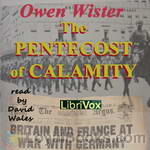 The Pentecost of Calamity
The Pentecost of Calamity
Nonfiction. Appalled by the savagery of World War I, Owen Wister in 1915 published an attempt to move the United States out of neutrality into joining the Allies against Germany. His aim was the quicker defeat of that nation. (Wister: “the new Trinity of German worship – the Super-man, the Super-race, and the Super-state.”) He was but one of many literary personages who joined in this effort. A moving quote: “Perhaps nothing save calamity will teach us what Europe is thankful to have learned again – that some things are worse than war, and that you can pay too high a price for peace; but that you cannot pay too high for the finding and keeping of your own soul.” | |
By: P. A. (Patrick Arkley) Wright Henderson (1841-1922) | |
|---|---|
 The Life and Times of John Wilkins Warden of Wadham college, Oxford; master of Trinity college, Cambridge; and Bishop of Chester
The Life and Times of John Wilkins Warden of Wadham college, Oxford; master of Trinity college, Cambridge; and Bishop of Chester
| |
By: P. Austin Nuttall | |
|---|---|
 The Nuttall Encyclopædia Being a Concise and Comprehensive Dictionary of General Knowledge
The Nuttall Encyclopædia Being a Concise and Comprehensive Dictionary of General Knowledge
| |
By: P. Gerald (Percy Gerald) Sanford | |
|---|---|
 Nitro-Explosives: A Practical Treatise
Nitro-Explosives: A Practical Treatise
| |
By: P. R. Kincaid | |
|---|---|
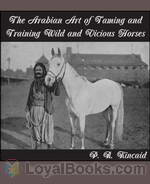 The Arabian Art of Taming and Training Wild and Vicious Horses
The Arabian Art of Taming and Training Wild and Vicious Horses
Back in the day before automobiles, a good horse trainer and veterinarian was the equivalent of “Mr Goodwrench”. A badly behaving or unhealthy equine was equivalent to breaking down on the highway or running out of gas on a lonely stretch of highway somewhere in Utah. My sources tell me that most of the training methods are ok, but stay away from the medical tips unless you are prepared to become the poster boy or girl for the local SPCA. Listen with tongue in cheek, and check with a professional before attempting any of these techniques on a real animal. | |
By: P. T. Barnum (1810-1891) | |
|---|---|
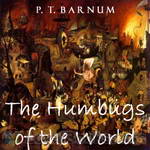 The Humbugs of the World
The Humbugs of the World
P. T. Barnum exposes some of the chief humbugs of the world with his usual entertaining style. He looks at medicine and quacks, ghosts, witchcraft, religious humbugs, money manias, adventurers, personal reminiscences, and much more. | |
By: P.T. Barnum | |
|---|---|
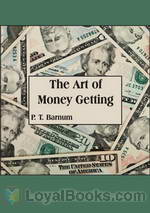 The Art of Money Getting
The Art of Money Getting
Phineas Taylor Barnum (July 5, 1810 – April 7, 1891) was an American showman, businessman, and entertainer, remembered for promoting celebrated hoaxes and for founding the circus that became the Ringling Bros. and Barnum & Bailey Circus.(br />His successes may have made him the first "show business" millionaire. Although Barnum was also an author, publisher, philanthropist, and for some time a politician, he said of himself, "I am a showman by profession...and all the gilding shall make nothing else of me," and his personal aims were "to put money in his own coffers". (Reference: Wikipedia.org) | |
By: Pansy (1841-1930) | |
|---|---|
 Miss Dee Dunmore Bryant
Miss Dee Dunmore Bryant
The Bryant family - widowed Mrs. Bryant and her children Benjamin, Caroline , and little Daisy - is on the thin edge of poverty due to debt incurred when Mr. Bryant was alive. We follow the family, especially Ben and Daisy, as they help shoulder some of the burden. Prominent in the story are children's dolls, which are the means to some of the family's income. - Summary by TriciaG | |
By: Patanjali | |
|---|---|
 The Yoga Sutras of Patanjali
The Yoga Sutras of Patanjali
Yoga sutras by Patanjali is a seminal work in yoga, this book is more about control of mind and the true goal of yoga. The sutras are extremely brief, and the translation in neat English makes it very easy for people to understand the ancient Sanskrit text. It starts with the birth and growth of spiritual man through the control of mind. In all, this is a "all in one" book for yoga philosophy written by the master himself. | |
By: Patrick Henry (1736-1799) | |
|---|---|
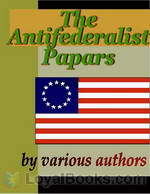 The Anti-Federalist Papers
The Anti-Federalist Papers
During the period of debate over the ratification of the Constitution, numerous independent local speeches and articles were published all across the country. Initially, many of the articles in opposition were written under pseudonyms, such as “Brutus”, “Centinel”, and “Federal Farmer”. Eventually, famous revolutionary figures such as Patrick Henry came out publicly against the Constitution. They argued that the strong national government proposed by the Federalists was a threat to the rights of individuals and that the President would become a king... | |
 Give Me Liberty or Give Me Death
Give Me Liberty or Give Me Death
This speech was given March 23, 1775, at St. John’s Church in Richmond, Virginia, and is credited with having singlehandedly convinced the Virginia House of Burgesses to pass a resolution delivering the Virginia troops to the Revolutionary War. In attendance were Thomas Jefferson and George Washington. Reportedly, the crowd, upon hearing the speech, jumped up and shouted, “To Arms! To Arms!” | |
By: Paul Allardyce (1855-1895) | |
|---|---|
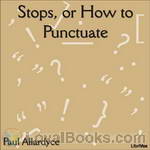 Stops, or How To Punctuate
Stops, or How To Punctuate
Throughout the ages, languages continue to adapt and change. English, being a relatively new language, is a nice example of that. Though the English vocabulary is continually evolving, the system of punctuation has remained constant for the most part. This means that grammar books from 1895 are still applicable today. Therefore, if the following sentence looks correct to you, perhaps listening to Paul Allardyce’s “Stops, or How to Punctuate” would be a good idea. | |
By: Paul Ehrlich (1854-1915) | |
|---|---|
 Histology of the Blood
Histology of the Blood
This is a textbook on the science of blood and bloodwork by (1908) Nobel Prize winner, Dr. Paul Ehrlich. Should appeal to hematologists, phlebotomists, and just plain folks interested in how our bodies work. | |
By: Paul Klapper (1885-1952) | |
|---|---|
 College Teaching Studies in Methods of Teaching in the College
College Teaching Studies in Methods of Teaching in the College
| |
By: Pauline von Hugel (1858-1901) | |
|---|---|
 A Royal Son and Mother
A Royal Son and Mother
Demetrius Augustine Gallitzin (1770-1840) was an emigre Russian aristocrat and Catholic priest who is acclaimed as "The Apostle of the Alleghenies." He is the son of Prince Dimitri Alexeievich, a Russian ambassador to the Netherlands, and the German Countess Adelheid Amalie von Schmettau. Demetrius was raised Russian Orthodox, but at age seventeen he converted to Catholicism, the faith of his mother, following her miraculous recovery from a serious illness. Although the ambassador had planned a military career for his son and had sent him to America for an education, he was shocked to learn that his son had renounced his inheritance and had entered a seminary instead... | |
By: Pearl Buck (1892-1973) | |
|---|---|
 Mother
Mother
Life is difficult for The Mother, with a household of husband and children, when her crone of a mother-in-law comes to live with them. It is a life of drudgery and toil. But a mother will do anything to protect her children, despite the pain and suffering she may endure, when, without warning, her restless husband abandons her. The shame, the toil, the love... all demonstrate the resilience of a woman in the face of adversity. It has been described as one of the best works of fiction of the 20th century, This is in the Public Domain in the United States. - Summary by Lynne T. | |
By: Pearl White (1889-1938) | |
|---|---|
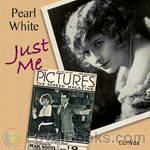 Just Me
Just Me
Perhaps the first memoir written by a film celebrity, Pearl White's Just Me gives a first-person account of the actress' rise to stardom. White guides us through her early childhood, her development as a performer, and finally to her breakout role in The Perils of Pauline--a role that made her the most popular "serial queen" of early cinema. Although romanticized and somewhat embellished, this book gives us a fascinating glimpse into the film industry's earliest years and the various myths of film stardom. | |
By: Percival Lowell (1855-1916) | |
|---|---|
 Mars and Its Canals
Mars and Its Canals
In the days before telescope photography, astronomers had to draw what they thought they saw through the eyepiece throughout the long dark nights. Sometimes they saw saw more than there really was to see, and a bit over 100 years ago Percival Lowell published books on what he was sure were canals on Mars, signs of intelligent civilization. by Alfred Russel Wallace.) - Summary by ToddHW | |
By: Percy Fitzpatrick | |
|---|---|
 The Outspan: Tales of South Africa
The Outspan: Tales of South Africa
Six poignant short stories reminiscent of life as a transport rider in the Transvaal veld in the days of the gold rush in South Africa at the end of the 19th century. From an early age Fitzpatrick believed that life should be enjoyed to the full and his honest and often moving style of writing leaves one richer for having known him. | |
By: Peter Abelard (1079-1142) | |
|---|---|
 The Story of My Misfortunes
The Story of My Misfortunes
Autobiographies from remote historical periods can be especially fascinating. Modes of self-presentation vary greatly across the centuries, as of course does the very concept of Self. Peter Abelard, the medieval philosopher and composer, here gives a concise but vivid survey of his notoriously calamitous life. The work is couched in the form of a letter to an afflicted friend. Abelard’s abrasively competitive, often arrogant personality emerges at once in the brief Foreword, where he informs his correspondent: “(I)n comparing your sorrows with mine, you may discover that yours are in truth nought.. and so shall you come to bear them the more easily.” | |
By: Peter C. Welsh | |
|---|---|
 Woodworking Tools 1600-1900
Woodworking Tools 1600-1900
| |
By: Peter Fisher (1782-1848) | |
|---|---|
 History of New Brunswick
History of New Brunswick
Originally published in 1825 under the title: Sketches of New Brunswick : containing an account of the first settlement of the province, with a brief description of the country, climate, productions, inhabitants, government, rivers, towns, settlements, public institutions, trade, revenue, population, &c., by an inhabitant of the province. The value of this history is in the fact that it was written when the Province was still in its infancy. Although there had been a few small settlements established in New Brunswick prior to 1783, the main influx of settlers were Loyalists who chose to remove to the area from the United States following the American Revolution. | |
By: Peter Kropotkin (1842-1921) | |
|---|---|
 Mutual Aid: A Factor of Evolution
Mutual Aid: A Factor of Evolution
Mutual Aid: A Factor of Evolution is a book by Peter Kropotkin on the subject of mutual aid, written while he was living in exile in England. It was first published by William Heinemann in London in October 1902. The individual chapters had originally been published in 1890-96 as a series of essays in the British monthly literary magazine, Nineteenth Century. Written partly in response to Social Darwinism and in particular to Thomas H. Huxley’s Nineteenth Century essay, The Struggle for Existence, Kropotkin’s book drew on his experiences in scientific expeditions in Siberia to illustrate the phenomenon of cooperation... | |
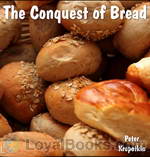 The Conquest of bread
The Conquest of bread
In this work, Kropotkin points out what he considers to be the fallacies of the economic systems of feudalism and capitalism, and how he believes they create poverty and scarcity while promoting privilege. He goes on to propose a more decentralised economic system based on mutual aid and voluntary cooperation, asserting that the tendencies for this kind of organisation already exist, both in evolution and in human society. | |
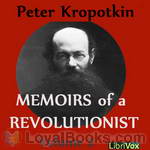 Memoirs of a Revolutionist, Vol. 2
Memoirs of a Revolutionist, Vol. 2
Peter Kropotkin was a Russian anarcho-communist and scientist. This is his autobiography, and he writes not only about his own life, but also about 19th century Russian society and politics. He was born into the nobility and had a military education, but he gradually abandoned the values of his social class and became an anti-authoritarian socialist, opposed to both the rule of the Tsars and to the seizing of power by the authoritarian Bolsheviks. He was also interested in literature, biology, economics and geographical exploration. This second and last volume of his memoirs covers his time in St Petersburg, his time in prison, and his journeys in Western Europe. ( | |
By: Philander Misaurus | |
|---|---|
 Honour of the Gout
Honour of the Gout
This droll and 'enflammatory' pamphelet doth be a grondebreaking worke of musing upon a great aflicktion of Man, upon the better nature of that aflicktion, and upon the vain and mischievous cheats who affeckt to cure it. The gauntlet here so-toss'd by Philander Misaurus was later pick'd up by surgeon John Marten in his rejoinder, titled by the name–"The Dishonour of the Gout". Which seeketh to shew all minds swayed by Philander's prettie words that—indubitably—Gout is misfortune. - Summary by Alasdair | |
By: Philip E. Muskett (-1909) | |
|---|---|
 The Art of Living in Australia ; together with three hundred Australian cookery recipes and accessory kitchen information by Mrs. H. Wicken
The Art of Living in Australia ; together with three hundred Australian cookery recipes and accessory kitchen information by Mrs. H. Wicken
| |